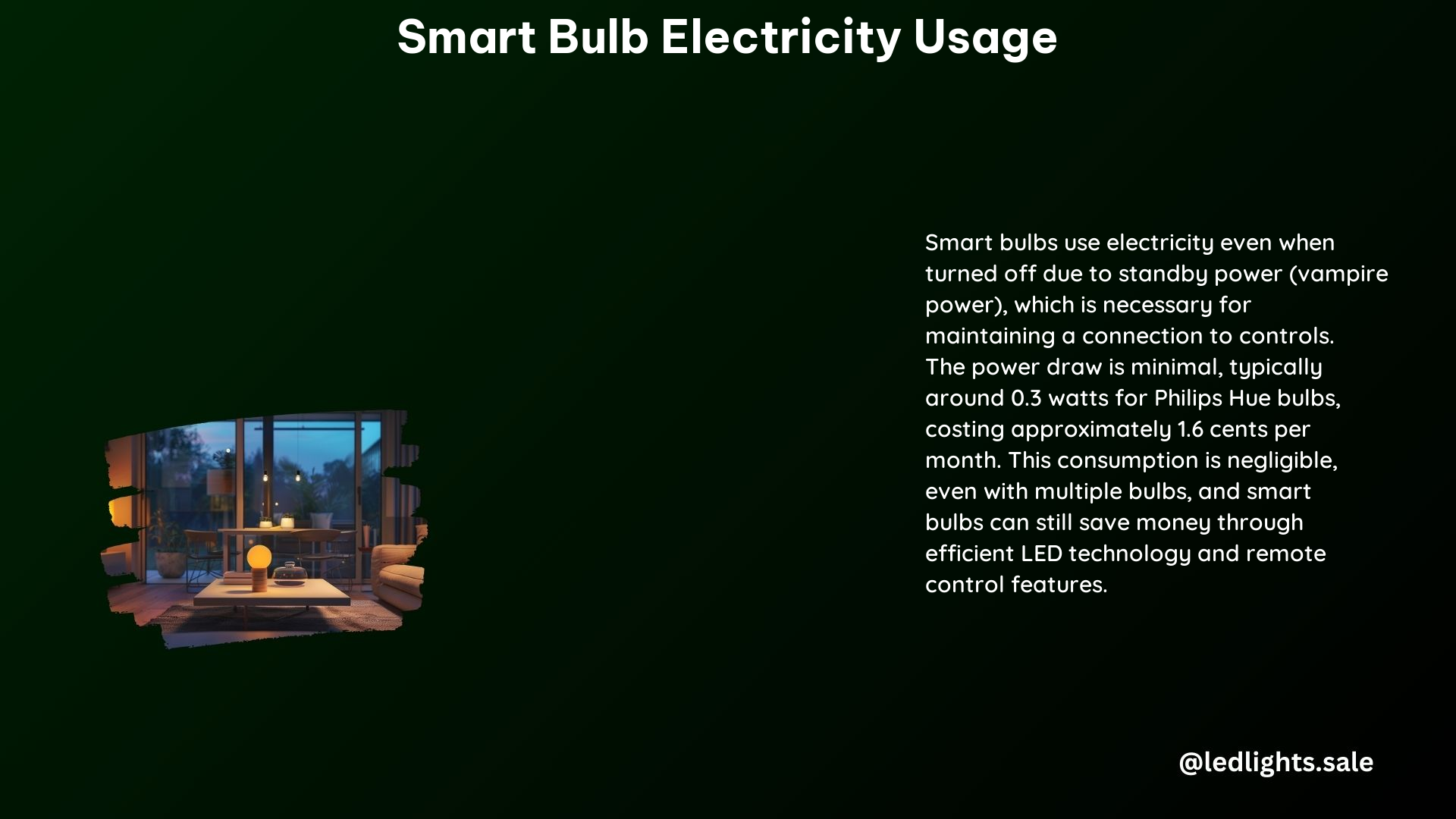Smart bulbs have become increasingly popular in recent years due to their convenience, energy efficiency, and advanced features. However, one common concern among users is the power consumption of these bulbs, even when they are turned off. This comprehensive guide will delve into the technical details of smart bulb electricity usage, providing you with a thorough understanding of their standby power consumption and its impact on your energy bills.
How Much Power Do Smart Bulbs Use When Turned Off?
The amount of power consumed by smart bulbs when turned off varies depending on the brand, model, and specific features of the bulb. On average, a smart bulb uses a very low amount of power, typically around 0.5 watts, which translates to a few cents per month in electricity costs.
To provide a more detailed breakdown:
- Philips Hue Bulbs: These popular smart bulbs draw between 0 and 0.3 watts of power when turned off, costing approximately 1.6 cents per month to operate in standby mode.
- LIFX Smart Bulbs: These bulbs have a slightly higher standby power consumption, drawing around 0.5 watts, which equates to around 3.5 cents per month.
- Wyze Bulbs: The Wyze smart bulb has a standby power consumption of 0.1 watts, resulting in a negligible monthly cost of just 0.7 cents.
It’s important to note that these figures are based on average electricity rates and may vary depending on your local utility rates.
Is Standby Power Consumption of Smart Bulbs Significant?

While the individual power consumption of a single smart bulb may seem insignificant, the cumulative effect of having multiple smart bulbs in your home can add up. For instance, if you have 20 smart bulbs in your home, the total standby power consumption could be around 10 watts, costing you approximately $1 per month.
However, it’s important to put this into perspective. The standby power consumption of smart bulbs is relatively small compared to other household appliances and electronics. For example, a typical refrigerator can consume around 50-100 watts in standby mode, and a television can use 1-5 watts when turned off.
Technical Specification of Smart Bulb Electricity Usage
To provide a more comprehensive understanding of smart bulb electricity usage, let’s dive into the technical specifications:
| Bulb Model | Standby Power Consumption (Watts) | Monthly Cost (Assuming $0.12/kWh) |
|---|---|---|
| Philips Hue | 0 – 0.3 | $0.016 – $0.048 |
| LIFX | 0.5 | $0.035 |
| Wyze | 0.1 | $0.007 |
| Sengled | 0.3 | $0.021 |
| Kasa Smart | 0.4 | $0.028 |
| Geeni | 0.5 | $0.035 |
It’s important to note that these values are approximate and may vary depending on the specific model, firmware version, and other factors. Additionally, the monthly cost calculation assumes an average electricity rate of $0.12 per kilowatt-hour (kWh).
Can Smart Bulbs Still Save Money?
Despite the standby power consumption, smart bulbs can still save you money in the long run. Here’s why:
-
Energy Efficiency: Smart bulbs are typically LED-based, which means they consume significantly less power when in use compared to traditional incandescent bulbs. This can lead to substantial energy savings, especially if you use your smart bulbs for extended periods.
-
Longer Lifespan: Smart bulbs have a much longer lifespan than traditional bulbs, typically around 10 years or more. This means you’ll need to replace them less frequently, resulting in long-term cost savings.
-
Remote Control and Automation: Smart bulbs can be controlled remotely and integrated with home automation systems, allowing you to turn them off when not in use. This can help reduce overall energy consumption and further offset the impact of standby power usage.
While the standby power consumption of smart bulbs is a valid concern, the overall energy savings and convenience they provide can still make them a cost-effective and environmentally-friendly choice for your home lighting needs.
